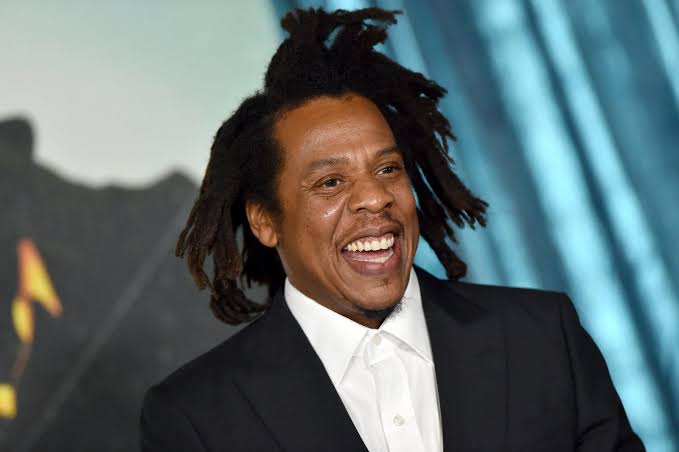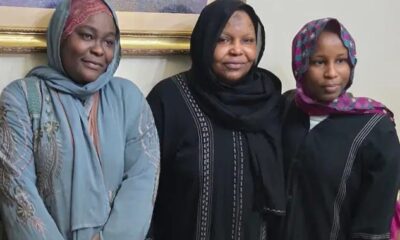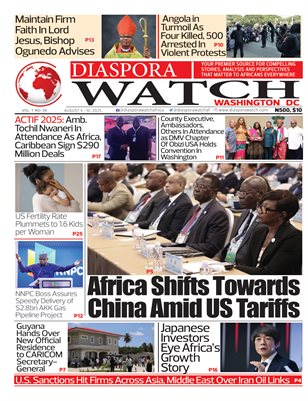Lifestyle
How to Promote your Brand as a Small-Scale Business Owner
Today’s market is highly competitive and small-scale business owners must do more than just offer a great product or service to effectively promote their brand.
For entrepreneurs in the diaspora, this task comes with unique opportunities and challenges, especially when catering to a multicultural customer base or managing a transnational business with ties back home.
Promoting a brand involves creating awareness, building trust, and maintaining a consistent identity that resonates with your target audience.
Whether you run a catering business in London, a beauty salon in Toronto, or an online store shipping goods to West Africa, the following strategies can help amplify your brand’s presence and influence.
Define Your Brand Identity
The first step in brand promotion is having a clear identity. This includes your business name, logo, colors, tagline, and overall message.
More importantly, it should reflect your values, your story, and the unique benefits your business has to offer. Ask yourself some relevant questions and try answering them.
Utilize Social Media Smartly
Social media platforms like Instagram, Facebook, and TikTok offer free and powerful ways to reach new customers. Share photos of your products, behind-the-scenes clips, customer testimonials, and even your business journey.
Engage actively by responding to comments and messages, using trending hashtags, and collaborating with micro-influencers within your community.
Leverage Word-of-Mouth and Community Ties
As a diaspora business owner, your local immigrant community can be your strongest support system.
Attend cultural festivals, sponsor events, and network within local associations. Encouraging satisfied customers to spread the word can also bring in new clients organically. This is because people trust recommendations from those they know.
Build an Online Presence
Having a simple, user-friendly website or even a professional-looking online storefront can make your business look more credible.
Include your contact information, services or product catalog, pricing, and customer reviews. In today’s digital age, customers often look online before making purchase decisions.
Offer Value Through Content
One effective way to promote your brand is by offering useful content. Write blogs, create how-to videos, or post tips related to your industry.
For example, if you sell natural skincare products, share skincare routines or ingredient benefits. This not only promotes your brand but also positions you as an expert.
Use Promotions and Loyalty Programs
Everyone loves a good deal. Run limited-time discounts, offer referral bonuses, or start a simple loyalty program to keep customers coming back.
These strategies not only attract new clients but also show appreciation for existing ones.
Be Consistent and Professional
No matter how small your business is, consistency in branding and communication matters. Use the same logo, colors, and tone of voice across all platforms.
Be prompt in your responses, deliver on promises, and maintain a professional attitude.
Connect with the Diaspora and Back Home
Finally, many diaspora entrepreneurs find success by bridging markets—selling to customers abroad while staying connected to their roots.
Whether through export/import, themed products, or bilingual marketing, highlighting your cultural heritage can become a branding strength.
To promote a small-scale brand takes effort, creativity, and connection. For diaspora business owners, it is about blending global tools with local flavor. You can leverage technology, engage your community and have your brand grow steadily.
Lifestyle
The Pitt, The Studio Dominate 2025 Emmy Awards

The Pitt, The Studio Dominate 2025 Emmy Awards
Hollywood’s biggest television stars gathered on Sunday night for the 2025 Emmy Awards, where two productions, The Pitt and The Studio, emerged as the night’s biggest winners.
The Pitt, a gripping medical drama set in a bustling emergency room, clinched the coveted Best Drama Series, while The Studio, a satirical comedy about Hollywood politics, not only won Best Comedy Series but also shattered Emmy records with a clean sweep across multiple categories.
In a defining moment of the ceremony, veteran actor Noah Wyle earned his first-ever Emmy after decades in television, winning Lead Actor in a Drama Series for his performance in The Pitt.
Wyle, visibly moved, dedicated the award to healthcare workers worldwide, describing the show’s success as “a reflection of the courage and sacrifice of those who save lives every day.”
Seth Rogen’s The Studio proved unstoppable in the comedy category, taking home 13 trophies — the highest number of wins for a comedy series in a single year, according to the Television Academy.
Rogen, who co-created and starred in the show, also walked away with Lead Actor in a Comedy Series, his first Emmy.
He called the triumph “the proudest moment” of his career.
Critics have hailed The Studio for its sharp wit and insider satire, offering audiences a humorous but piercing look into Hollywood’s inner workings.
The series’ record-breaking feat now places it among the most celebrated comedies in Emmy history.
Industry watchers say the dual success of The Pitt and The Studio signals a shift in Hollywood storytelling, with both shows reflecting real-world struggles and triumphs in institutions — healthcare and entertainment — that resonate with global audiences.
The victories came against formidable contenders including Severance and Abbott Elementary, underscoring the appetite for fresh narratives that balance cultural depth with entertainment.
As the night drew to a close, the Emmy spotlight rested squarely on The Pitt and The Studio — productions that not only entertained millions but also reinforced television’s enduring power to mirror society.
Lifestyle
Jay-Z Emerges World’s Richest Musician with $2.5bn Net Worth — Forbes

Jay-Z Emerges World’s Richest Musician with $2.5bn Net Worth — Forbes
American rap icon and business mogul, Sean Carter, better known as Jay-Z, has been declared the world’s richest musician by Forbes with an estimated net worth of $2.5 billion.
The Roc Nation founder’s fortune cuts across multiple ventures, including his luxury champagne brand, Armand de Brignac (Ace of Spades), cognac label D’Ussé, and his stakes in real estate, hospitality, technology, and startups.
He also reaped huge gains from the sale of music streaming platform Tidal and his former clothing line, Rocawear.
Jay-Z’s rise to the top further cements his reputation as not only a cultural force but also one of the most successful music entrepreneurs globally.
On the female side, American pop star Taylor Swift retained her crown as the richest female musician, with a net worth of $1.6 billion.
Forbes noted that Swift remains the first artist in history to attain billionaire status solely from music and touring earnings.
Lifestyle
Single Mothers Can’t Raise Boys Into ‘Proper Men’ – Jim Iyke

Single Mothers Can’t Raise Boys Into ‘Proper Men’ – Jim Iyke
Nollywood star, Jim Iyke, has stirred controversy with his recent remarks on parenting, insisting that single mothers cannot raise a boy into a “proper man” without the presence of a male figure.
Speaking during an interview with Okay 101.7 FM in Accra, Ghana, the actor argued that women are naturally built to nurture but lack the disciplinary balance needed to raise boys into men.
“A woman can’t raise a man. You can’t, you’re not built for it. A single mother cannot raise a man properly. You need a male influence – go get your brother that’s doing well or your father or even any man that you trust. There has to be a male presence in it [raising a boy child],” Iyke said.
He further maintained that boys require strict guidance from men in order to grow into disciplined adults.
“Because women are naturally built to nurture, to love. And then what you’re going to raise is a very weak man? He is going to be everything like the men that left you. You need somebody that would discipline him, tell him ‘No’ as often times as possible, and put him in the grind,” he added.
Iyke’s remarks have since triggered heated debates across social media, with some agreeing with his perspective while others accused him of undermining the struggles of single mothers who successfully raise responsible children without male support.
The actor, who has often been outspoken on social issues, did not back down on his position, stressing that the absence of a male role model leaves a critical gap in raising boys.
-

 Politics11 hours ago
Politics11 hours agoObi Flays Tinubu Over Rivers Emergency Rule
-

 Politics11 hours ago
Politics11 hours agoUK Visit: Trump Skirts Mandelson–Epstein Controversy
-

 Health10 hours ago
Health10 hours agoWHO Raises Alarm as Global Cholera Deaths Surge by 50%
-

 News11 hours ago
News11 hours agoSaudi Frees Three Nigerian Pilgrims Detained Over Alleged Drug Trafficking
-

 News9 hours ago
News9 hours agoCARICOM Condemns Israeli Strike on Qatar, Demands Respect for International Law
-

 News10 hours ago
News10 hours agoTensions Deepen as South Sudan’s Kiir Suspends Machar, Slams Treason Charges























